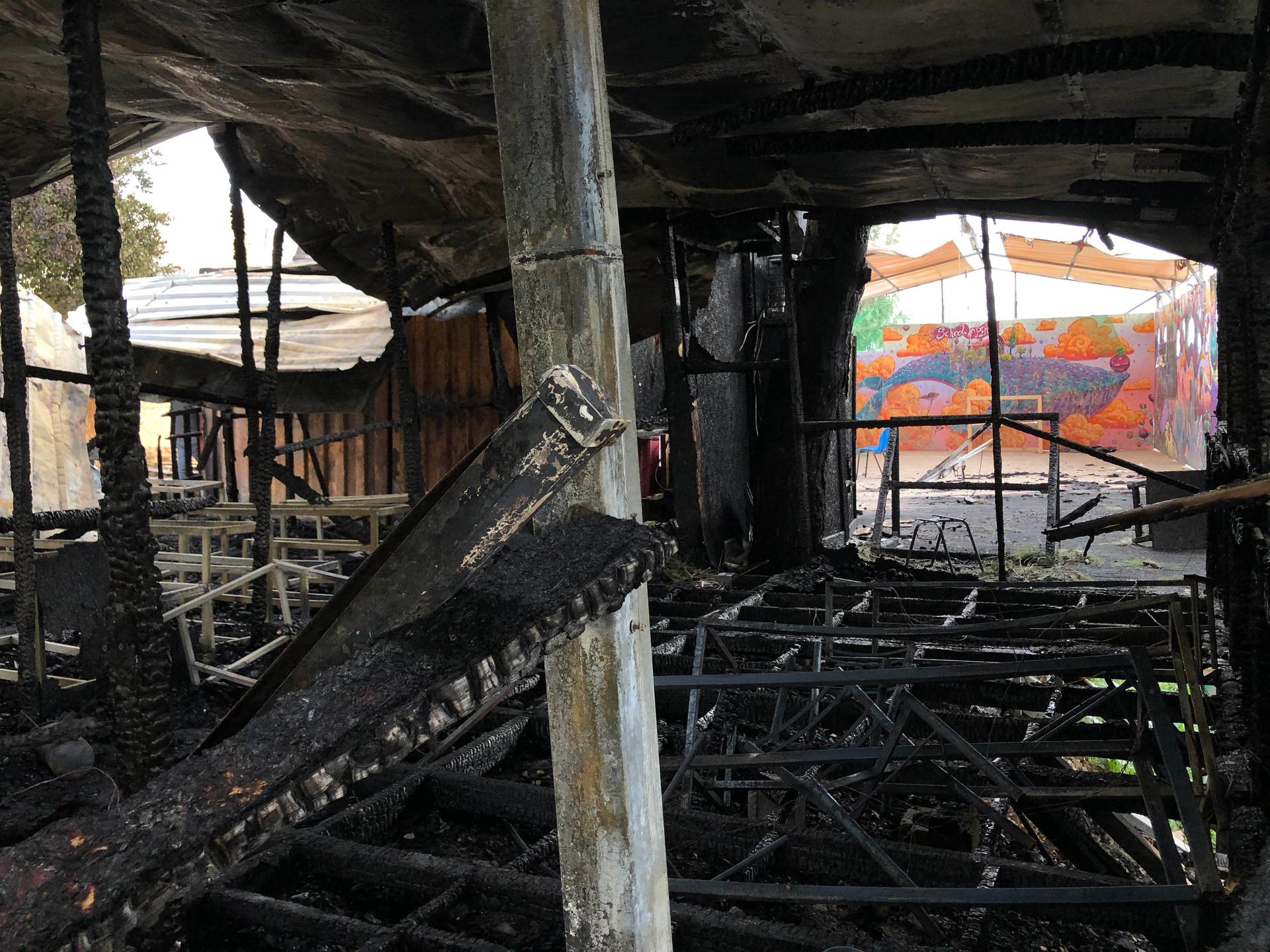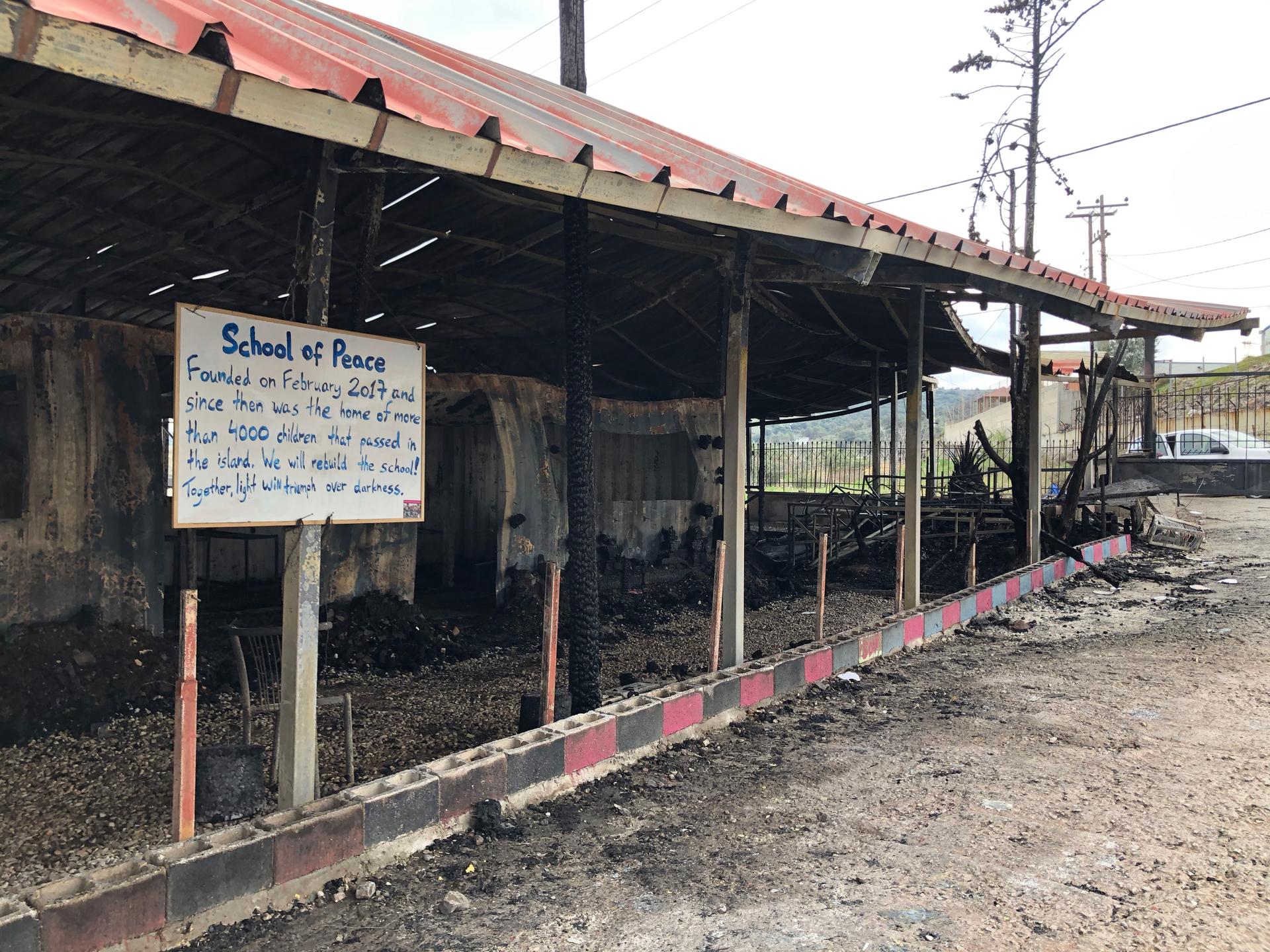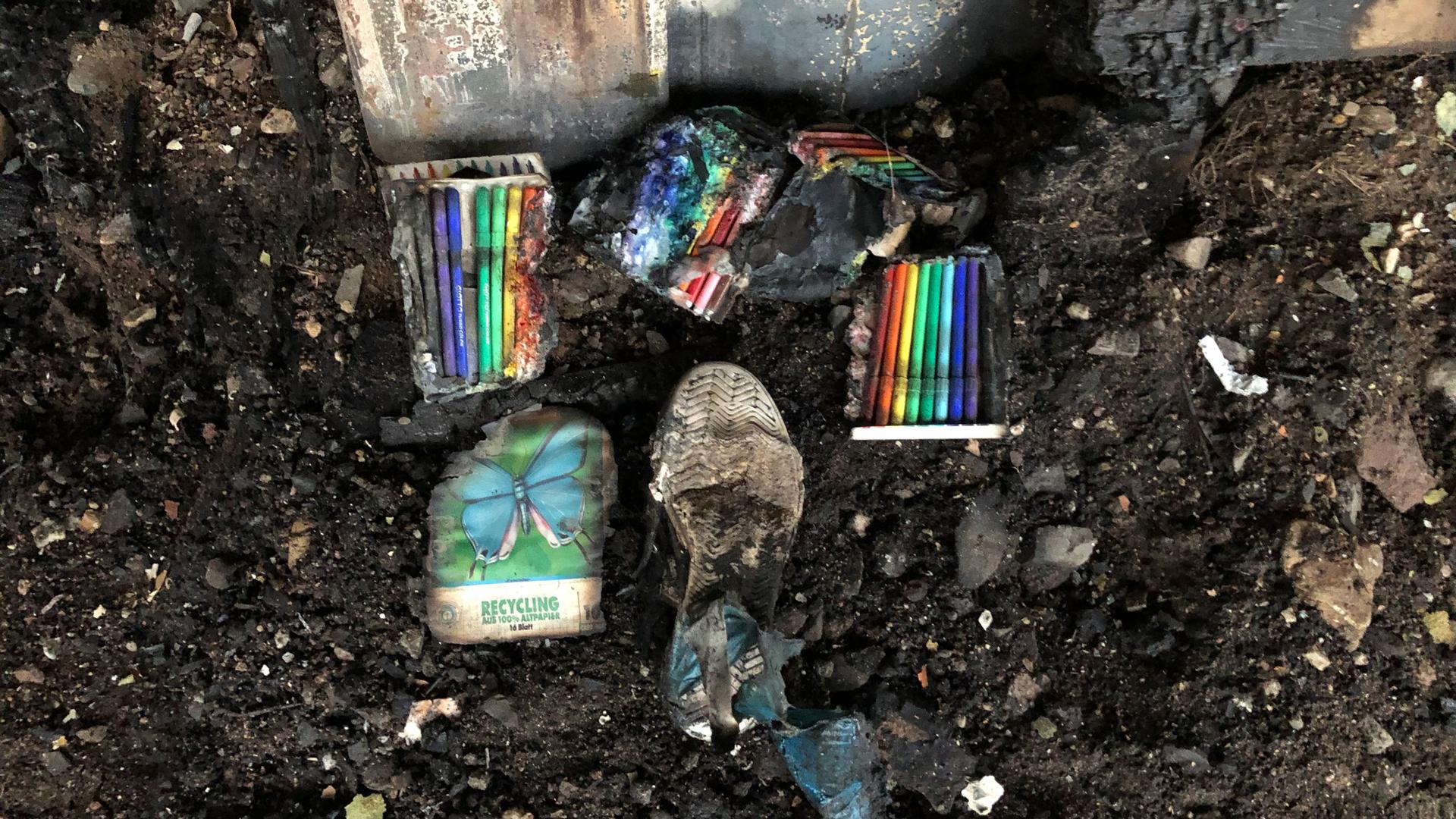For years, a center for refugees on the Greek island of Lesbos provided asylum-seekers stuck in camps with a place to escape.
Known as “One Happy Family,” the center is a complex of a few buildings situated on top of a hill in Mytilene, the island’s capital city and a major port. Run by several international nongovernmental organizations, the center provides refugees and migrants with free services such as education, health care, food and child care.
But last week, a fire turned one of the buildings — the complex’s colorful school — to rubble. Officials haven’t confirmed the cause of the conflagration, but the blaze took place amid increasing tensions over the migrant situation on the island.
Related: Cross-border tensions wreak havoc on bucolic Greek border village
Tens of thousands of migrants and refugees trying to make their way to other European countries are stuck on Lesbos. And since Turkey said last month it would no longer stop migrants from crossing into Greece, more people have been coming in recent weeks, bringing tensions on the island to an all-time high.
Aziz Barbari, a 23-year old asylum-seeker from Afghanistan, came to the island by boat via Turkey. He had spent most of his six months on Lesbos at the complex’s School of Peace, where he taught English and was taking a photography class.
“We all love this place because we came like five days per week here. It’s like, I was like living here, really.”
“We all love this place because we came like five days per week here. It’s like, I was like living here, really,” Barbari said.
For many, the school, which was built in 2017 as an unusual, joint effort between Arab and Jewish Israeli groups, had been an escape from the deplorable conditions at the Moria refugee camp on the island. The camp is severely overcrowded, with more than 20,000 people living in facilities built for just 3,000. And it can be dangerous, said Barbari, who is living there with his family.
A few days ago, he said, someone went after him with a knife. “I escaped, you know? I really don’t want to spend time in the Moria and around Moria.”
But now the school is rubble. The roof has fallen in, and all that’s left are metal frames of desks and chairs, and charred remains of pencils and books.
“Because this happened to this place, we really don’t know where to go, what to do. We lost something [very important to us],” Barbari said.

Doug Herman, co-founder of ReFOCUS Media Labs, a nonprofit that works with refugees in several places around the world, taught photography and film classes at the school. He says it’s difficult to see his students’ work turned to ash. It’s hard not to think that it could have been intentional, he said.
“We can’t officially say anything, but everyone in their heart has a certain feeling as to what happened here.”
“We can’t officially say anything, but everyone in their heart has a certain feeling as to what happened here,” he said.
The climate on the island over the past few weeks has been hostile, Herman said, as locals, anti-migrant vigilante groups, and the police have clashed with migrants and the nongovernmental organizations that work with them. Some NGOs have even left the island.
“People were getting pulled out of their cars. People are being attacked. Journalists are being attacked. I was attacked. It’s not a comfortable environment to be in,” Herman said. “And so everyone feels under attack, everyone’s lost their safety, everyone feels really nervous about going out at night.”
The people who run the school say they don’t yet have answers about what happens next.
“We don’t know what’s coming next for the whole community is all. We don’t know when we can open again,” said Herman. “If we can open again, how much work it’s going to take to put this place back to what it was? Nothing was here before, you know, when this place was created. It was all created by the people who for the last three years have been coming here to make it what it is.”
Nothing from the fire is salvageable, and the school will have to be torn down and rebuilt. But that will take money — and approval from Greek authorities.
But the NGOs who run the School of Peace are determined to start again. In front of the ashes they’ve posted a sign:
“School of Peace. Founded on February 2017 and since then was the home of more than 4,000 children that passed [through] the island. We will rebuild the school. Together, light will triumph over darkness.”

To listen to the whole story, click the audio player above.
